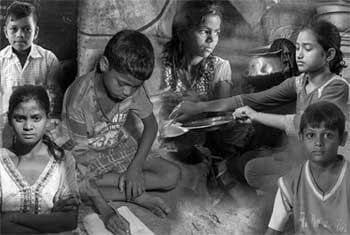Decline in Home Sales Due to Elections: An In-depth Analysis of the Top Eight Cities in India
INVC NEWS
Mumbai : The real estate sector is a critical component of the Indian economy, with housing sales serving as a key indicator of market health. Recent data has highlighted a notable decline in home sales across India’s top eight cities, attributed primarily to the election period. In this detailed analysis, we explore the nuances of this decline, its causes, and the potential future outlook for the residential real estate market.
Quarterly Home Sales Data Analysis
According to a report released on Thursday, the period from April to June 2023 saw a 6% decline in housing sales compared to the previous quarter. The total number of units sold in this quarter was 113,768, down from 120,642 units sold in the January to March period. Despite this quarterly decline, there was a remarkable 42% year-over-year increase in sales from 80,245 units sold in the same period the previous year.
Impact of the Election Period
Industry experts attribute the decline in home sales during the April-June quarter to the general elections. The election season often brings about a sense of uncertainty among potential homebuyers, leading to a temporary reduction in demand. This phenomenon is not unusual, as elections can impact consumer confidence and delay major financial decisions, such as purchasing a home.
City-wise Breakdown of Residential Sales
The report encompasses data from major cities, including Ahmedabad, Bengaluru, Chennai, Hyderabad, Kolkata, Delhi-NCR (Gurugram, Noida, Greater Noida, Ghaziabad, and Faridabad), Mumbai Metropolitan Region (Mumbai, Navi Mumbai, and Thane), and Pune. Let’s delve deeper into the performance of these individual markets.
Ahmedabad
Ahmedabad experienced a moderate dip in sales, consistent with the national trend. However, the city’s market remains resilient due to its robust infrastructure projects and economic activities.
Bengaluru
Bengaluru, known as the Silicon Valley of India, saw a slight decline in sales. The tech-driven city continues to attract significant real estate investment, maintaining a stable market despite the election-induced slump.
Chennai
Chennai reported a noticeable drop in sales, largely influenced by the political climate and economic factors unique to the region. Nevertheless, the city’s long-term prospects remain positive due to ongoing urban development projects.
Hyderabad
Hyderabad’s real estate market showed resilience with only a marginal decrease in sales. The city’s IT and biotech sectors continue to drive demand, keeping the market relatively buoyant.
Kolkata
Kolkata witnessed a more pronounced decline in housing sales. The city’s market is sensitive to political and economic fluctuations, making it more vulnerable during election periods.
Delhi-NCR
The Delhi-NCR region experienced a significant dip in sales, particularly in Gurugram and Noida. The metropolitan nature of this region, coupled with its political significance, contributed to the heightened impact of the elections on homebuyer sentiment.
Mumbai Metropolitan Region (MMR)
The MMR saw a moderate decline, with areas like Navi Mumbai and Thane experiencing more significant drops compared to Mumbai city. Despite this, the region remains a prime real estate market with strong investment potential.
Pune
Pune’s market showed relative stability, with only a minor decrease in sales. The city’s educational institutions and IT sector continue to attract homebuyers, mitigating the impact of the election period.
Factors Influencing the Decline in Demand
Several factors contributed to the decline in housing demand during the election period:
Political Uncertainty
Elections inherently bring a period of uncertainty, which can lead to a wait-and-see approach among potential homebuyers. Concerns about policy changes and economic stability can delay purchasing decisions.
Economic Considerations
The economic environment, influenced by the elections, can impact consumer confidence. During such periods, individuals may prioritize financial liquidity over long-term investments like real estate.
Market Sentiment
The general market sentiment during elections tends to be cautious. Real estate investments are significant financial commitments, and buyers prefer stability and clarity before making such decisions.
Positive Outlook for the Future
Despite the temporary decline, the outlook for the residential real estate market remains optimistic. Several factors contribute to this positive sentiment:
Strong Fundamentals
The fundamentals of the Indian real estate market remain strong, with continued urbanization, increasing disposable incomes, and favorable demographics driving demand.
Government Initiatives
Post-election, the formation of a stable government and the anticipation of an investment-friendly budget have bolstered market confidence. Policies aimed at promoting housing affordability and infrastructure development are expected to support the real estate sector.
Festive Season Boost
The upcoming festive season traditionally sees a surge in home buying. Developers often roll out attractive offers and discounts, which can significantly boost sales in the subsequent quarters.
Conclusion
In conclusion, while the April-June quarter witnessed a decline in home sales due to the election period, the long-term prospects for the Indian residential real estate market remain robust. The combination of strong market fundamentals, supportive government policies, and the anticipated post-election economic stability is expected to revitalize demand and drive sales growth in the coming quarters. Investors and homebuyers alike can remain confident in the resilience and potential of the Indian real estate market.
















